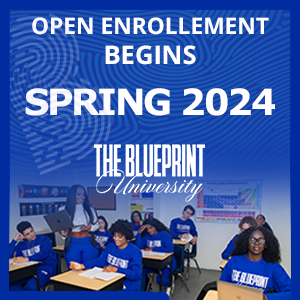Here we are again.
Two unarmed black men, George Floyd and Ahmad Aubrey; and an unarmed black woman, Breonna Taylor, were murdered. All violent and heartbreaking, their deaths have reopened a wound that the passing of time would try to make us numb and blind to. An injury that has never been treated and healed. The pain is so great that many risked their health to take to the streets in the middle of a contagious and deadly pandemic to voice their pain through intense protests that have captured the world’s attention.
Here we are again with another opportunity to create the change we wish to see. It’s been almost four years since I’ve felt this level of intensity coming from our community. A desire to say enough is enough and focus on the economic and political power we have as a Black community. People are no longer silent. They aren’t afraid to cancel, divest from, and defund people, businesses, and institutions that do not stand in solidarity with the Black community. We’ve decided to show that we will no longer support institutions that do not support us. The energy needed to refocus our collective economic power inwards is palpable. A strategic effort to hit those who abdicate their socio-political and financial responsibility, where it hurts — their wallets and profits — is on the horizon.
People could say it is a fed-up response to living in a world where 45 occupies the White House and uses his platform to LIE, gaslight, and harm anyone who doesn’t swear allegiance to him. Additionally, we are in an unprecedented pandemic that has kept us sheltered in place without reprieve. Could it be a public health crisis that has shined a light on all of the systemic inequities and brought the economy to a halt or a new attitude that has emerged in people who call themselves allies to be vocal? The confluence of those events are making things different this time. People are sacrificing their comfort zones to rebuke oppressive institutions. Police brutality and misconduct are being called out and challenged by our community, allies, and businesses. With an anemic economy, companies know that their survival depends on standing in solidarity with us. They see that people are no longer accepting silence. They are learning, more likely being advised, that silence is complicity.
More importantly, we are organizing. We are building an ecosystem that rejects apathy towards black lives. Our outrage has found vehicles, fueled by data to mobilize in a more organized way. Initiatives like Mapping Police Violence, Police Scorecards, and Campaign Zero use data to create solutions to end police violence. BankBlackUSA, which I co-founded, focuses on mapping bank deserts and providing digestible data for those who want to divest from big banks into black financial institutions. Black-owned businesses have become more accessible through applications that connect people who wish to refocus where their money goes—creating viable alternatives to big boxes and amazon.
Change agents like Calvin Martyr, creator of the Blackout Coalition, have leveraged social media tools to mobilize a one million-plus member community. Calvin is rooted in something deeper, “being obedient to The Most High.” After Ahmad Aubrey’s murder, he felt something had to change now. His vision is that all black people become united as one nation. He said, “once we do, nothing will be able to stop us. We are the covenanted people, which gives us unlimited favor.” Calvin’s belief is at the end of this, “we will unite internationally with our economic power as a nation of people globally.” Mr. Martyr has gained many champions in his call for an economic boycott on July 7th, 2020, also known as Blackout Day 2020. The one that got my attention was OneUnited Bank. The Chairman and CEO of OneUnited, Kevin Cohee, has endorsed his movement and plans to be a spokesperson. I had an opportunity to speak to Chairman Cohee to learn why he believes in this movement and the role that Black banks play.
He spoke about the Niagara movement and how a Black financial institution “is essential for economic justice and parity.” They are a part of the totality of resources necessary to create our economic system effectively.” To Mr. Cohee, this is a full-circle moment to the 400 years of unchecked oppression that we have experienced. He attributes what is happening now to the ability of technology to organize us and effect change.

Chairman Cohee says OneUnited delivers a message that is part protest and part progress because we are organizing economically. Blackout Day 2020 is an excellent example of what “organizing the spending power of our community” looks like. Every company needs money to accomplish its goals, and when a collective, black people, stops spending their money with a company, you create an impact that affects the actions of a company. The reason why he put the bank together was “to give black people economic power.” The bank can serve as a tool to assist in guiding decisions on how we use our money in a way that causes entities to take the actions that our community needs them to take. He firmly believes that the internet and social media are powerful tools. He is impressed with how people like Calvin Martyr have used the internet to mobilize in the wake of injustice, and he believes OneUnited has a role to play. “Banks do more than store your money, banks provide economic leadership, and Blackout Day 2020 is a manifestation of the whole purpose of the bank goal to organize our spending power to implement change.”
“Our black dollar affects the world’s culture, and how we spend our dollar reflects who we are. We have everyone’s attention” – Kevin Cohee, Chairman, and CEO of OneUnited Bank.










